Space
-
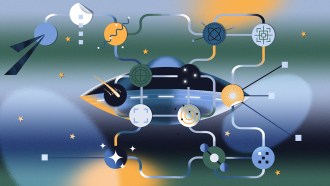 Space
SpaceScientists are getting serious about UFOs. Here’s why
UFOs have been rebranded as UAPs (unidentified anomalous phenomena). Probably not aliens, they might impact national security and aircraft safety.
By Sid Perkins -
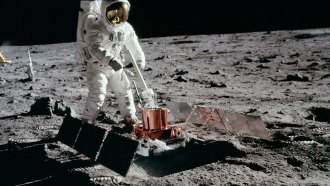 Space
SpaceMoonquakes are much more common than thought, Apollo data suggest
The discovery of 22,000 previously unseen moonquakes, plus a new idea of what causes them, could help us better prepare for trips there.
-
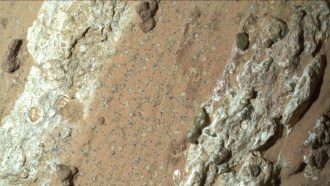 Planetary Science
Planetary ScienceNASA’s Perseverance rover finds its first possible hint of ancient life on Mars
The NASA Mars rover examined a rock containing organic compounds and “leopard spots” that, on Earth, are associated with microbial life.
-
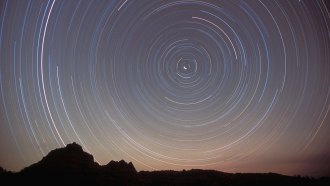 Astronomy
AstronomyThe North Star is much heavier than previously thought
Polaris is about five times as massive as the sun, new observations reveal. That’s around 50 percent heavier than what an earlier study found.
By Ken Croswell -
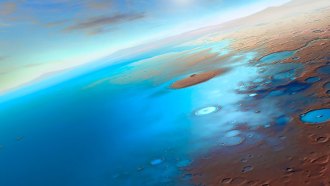 Space
SpaceA planet needs to start with a lot of water to become like Earth
Rocky planets around fiery stars could hide their water for later use, but it takes 3 to 8 times the amount in our world’s oceans to end up Earthlike.
-
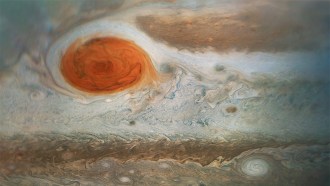 Planetary Science
Planetary ScienceJupiter’s Great Red Spot may be less than 200 years old
An analysis of images spanning hundreds of years suggests a dark spot spied in the late 1600s and early 1700s is distinct from the Red Spot seen today.
-
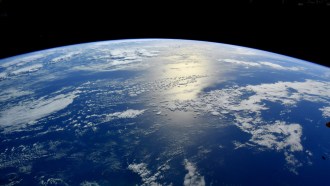 Planetary Science
Planetary ScienceSulfur was key to the first water on Earth
Hydrogen bonded with sulfur may have given our world its first water after the hydrogen broke away and joined with oxygen in the planet’s crust.
By Ken Croswell -
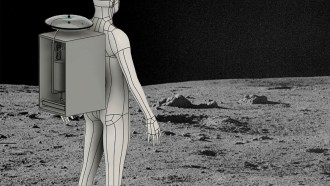 Space
SpaceA Dune-inspired spacesuit turns astronaut pee into drinking water
The spacesuit design collects urine, filters it, adds electrolytes and stores the cleaned water for the astronaut to drink.
By Adam Mann -
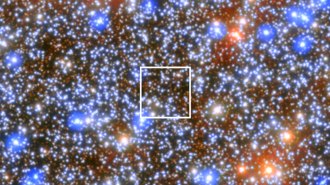 Astronomy
AstronomyA middleweight black hole has been spotted for the first time in our galaxy
The rare find, discovered in the star cluster Omega Centauri, could offer clues to how black holes and galaxies evolve.
-
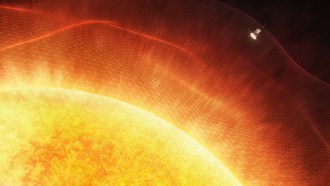 Space
Space50 years ago, scientists were gearing up to hurl a probe at the sun
The Helios mission provided key insights into the sun. Now, NASA’s Parker Solar Probe has taken up the mantle, giving scientists unprecedented views of the star.
-
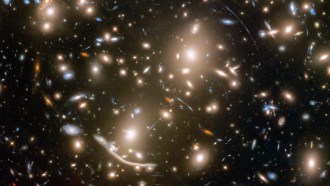 Cosmology
CosmologyStrange observations of galaxies challenge ideas about dark matter
A new look at how light bends as it travels through the universe could point to an alternative theory of gravity.
By Adam Mann -
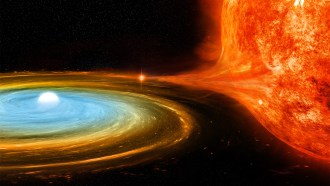 Astronomy
AstronomyA stellar explosion may add a temporary ‘new star’ to the night sky this summer
A nova occurs in the constellation Corona Borealis once every 80 years. Its bright light will be visible to the naked eye for up to a week.
By Jay Bennett